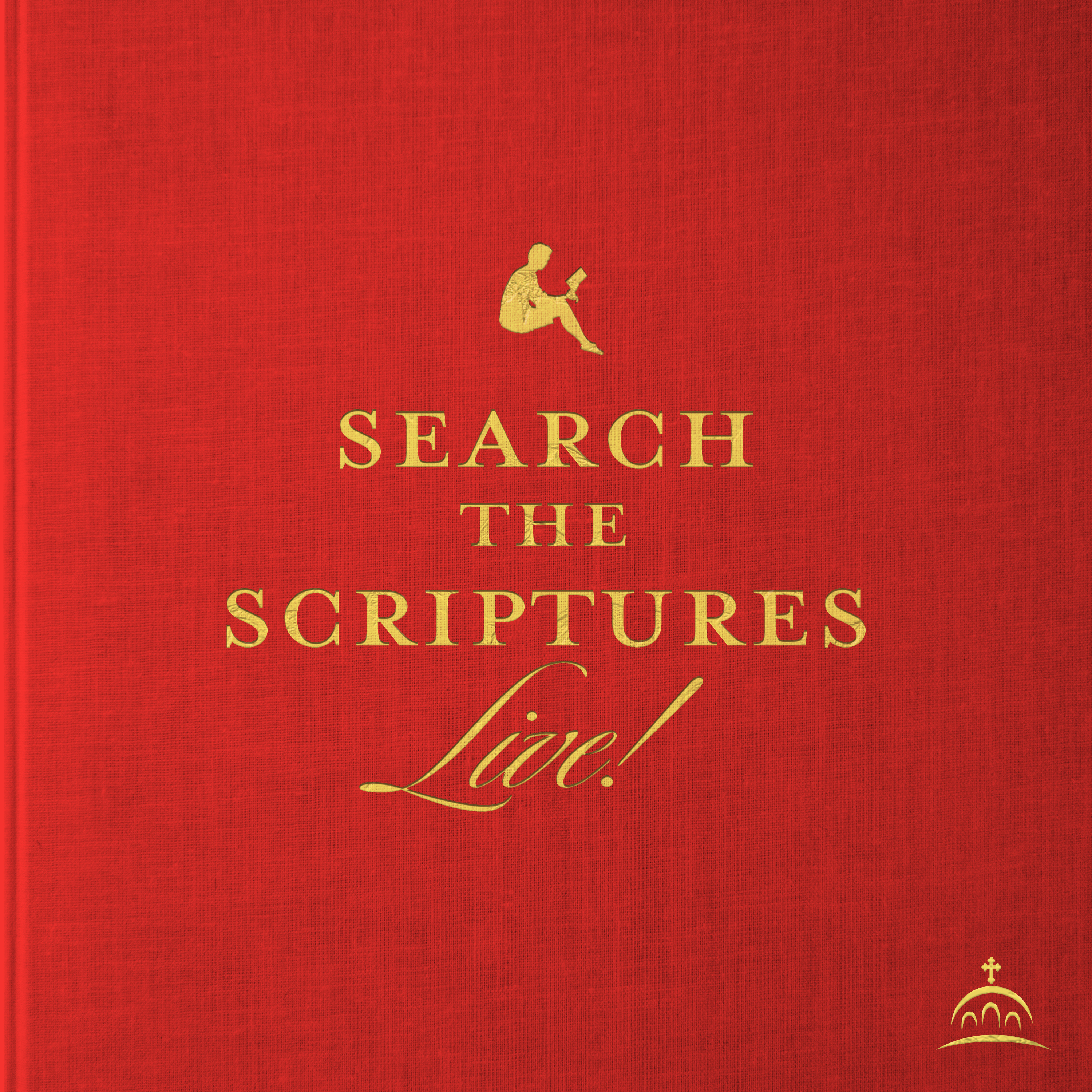

Search the Scriptures Live
Dr. Jeannie Constantinou, and Ancient Faith Ministries
Interesting and Accessible Bible Study for Busy People
Episodes
Mentioned books

Dec 1, 2020 • 0sec
Is Hell Eternal?: Part 2
Dr. Constantinou continues her discussion about hell and judgment, primarily focusing on arguments which are being currently promoted that hell is not eternal. Is that a possibility? She considers the arguments in the light of the Scriptures, the words of the Lord, Church history, the Fathers, and the Tradition of the Church. Do they conflict? Is there "reason for hope"? What consideration should be given to these arguments?

Nov 24, 2020 • 0sec
Revelation 20: Is Hell Eternal?
Dr. Constantinou continues her discussion of Revelation by focusing on the judgment and punishment as it is described in Chapter 20. On what basis will we be judged? Will punishment be eternal? What about the arguments that hell is not eternal?

Nov 17, 2020 • 0sec
Armageddon and the Millenium
Tonight on Search the Scriptures LIVE!, we will be discussing Armageddon and the Millennium. Is Armageddon World War III? Who will be involved in the fighting? How long will it last? When the Lord returns, will He establish an earthly kingdom and reign over it for 1,000 years?

Nov 10, 2020 • 0sec
Pouring Out the Plagues
Dr. Constantinou continues her study of Revelation, looking at Chapters 14 through 19, with special focus on the pouring out of the seven bowls of plagues, the appearance of the harlot, and the fall of Babylon. She also discusses the purpose of the plagues. Why will God send plagues at the end times?

Oct 27, 2020 • 0sec
The Emperor Cult
Dr. Jeannie discusses Rev.13, recapping for her listeners the concepts behind the Emperor Cult, who is the anti-christ, and what does the number 666 represent and what is the mark of the beast

Oct 20, 2020 • 0sec
What Is the Mark of the Beast? Who Was 666?
Dr. Jeannie continues her discussion on the Book of Revelation and focuses this week on Revelation 12, the Woman Clothed with the Sun, who was pursued by the Dragon. Is the woman the Virgin Mary? Then she turns her attention to Revelation 13, the appearance of two Beasts and the infamous number 666. What does it mean to receive the mark of the Beast? Who was the 666? Are these images simply about past historical events, or is there a message for us now and for the future?

Oct 13, 2020 • 0sec
Rapture and Revelation
Dr. Jeannie discusses the Protestant doctrine of the Rapture and Revelation. In Ch. 8 of Revelation, the seventh seal is opened, which begins a period of intense tribulations. Seven trumpets are blown resulting in dramatic changes and suffering among people. Why does God send the tribulations? Is this hell or is it punishment on earth for those destined for hell? Will anyone escape these tribulations? Who are the two witnesses who are sent to earth? Is there such a thing as the rapture? Will some people be taken up and spared the suffering of the end times?

Oct 6, 2020 • 0sec
How Will We Know When We Have Actually Entered the End Times?
Having already discussed the Four Horsemen of the Apocalypse and the first four “seals,” Dr. Constantinou goes on to explain the 5th, 6th, and 7th seals. This is a critical part of the book of Revelation in which there is a shift toward the eschatological future. How will we know when we are really in the end times, as opposed to simply experiencing the typical trials and tribulations of human life on Earth?

Sep 29, 2020 • 0sec
Who Are the Four Horsemen of the Apocalypse?
Dr. Jeannie continues her discussion on the Book of Revelation, centering on the Lamb and the Four Horsemen of the Apocalypse. She concludes her explanation of the four creatures by the throne of God and explains how they were interpreted as the four Evangelists in the patristic tradition. Then she continues her study of the Throne Room scene, where we will see the appearance of the Lamb who will open the scroll which is sealed with seven seals. The opening of each of the first four seals brings on the four horsemen of the Apocalypse.

Sep 22, 2020 • 0sec
Angels, Elders, Thrones, a Sea of Glass
Dr. Constantinou continues her study of Revelation with Chapter 4, John's visit to heaven, known as the "Throne Room" scene. There we see angels, elders, thrones, a rainbow, a sea of glass, and the lamb. What is the meaning of the imagery and the numbers? Who is on the throne? Why are the four creatures by the throne identified with the evangelists?
She also addresses an important theological question: When Christ said that only the Father knows the time of His return, does this mean that the Lord is ignorant of the time of the end?


